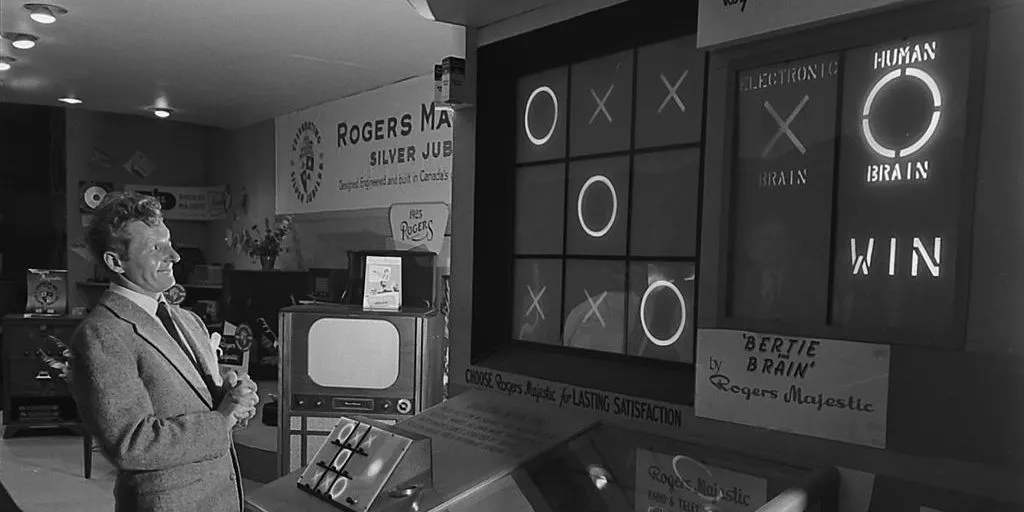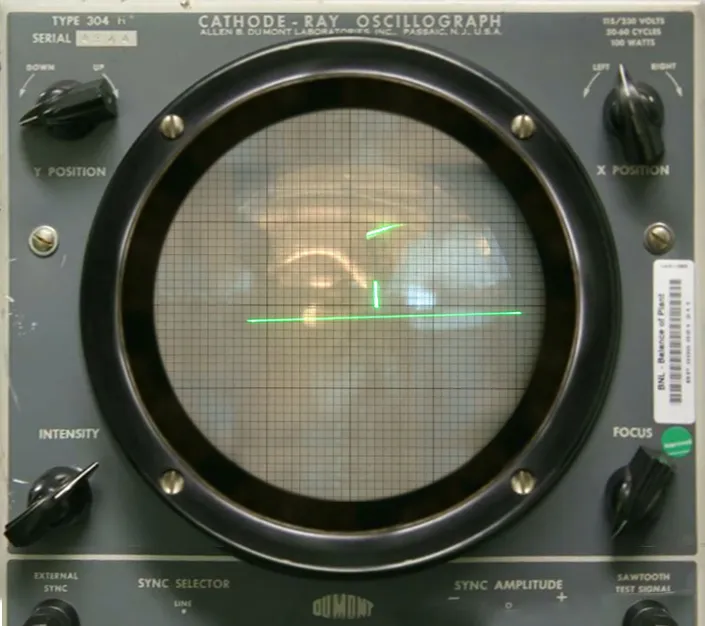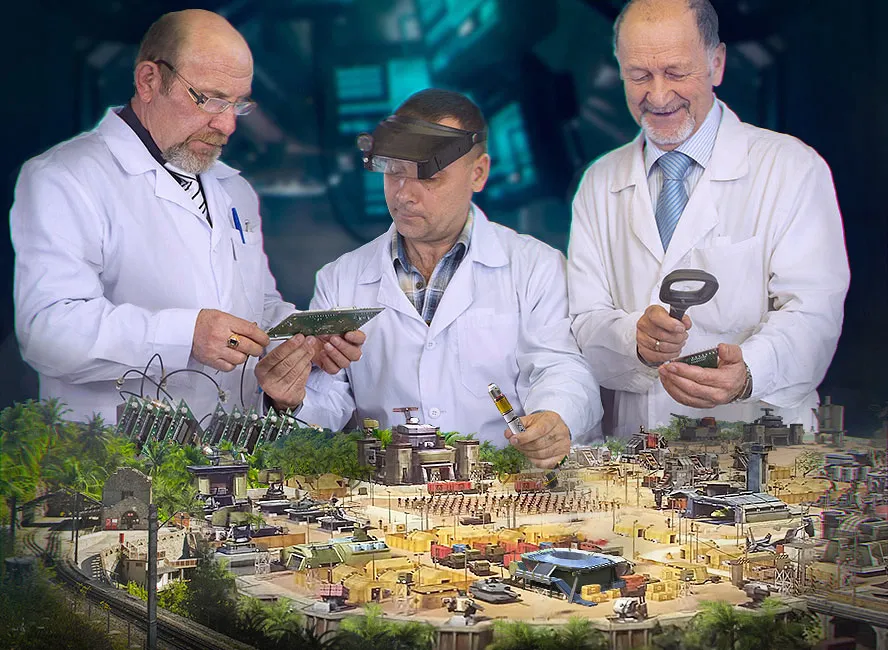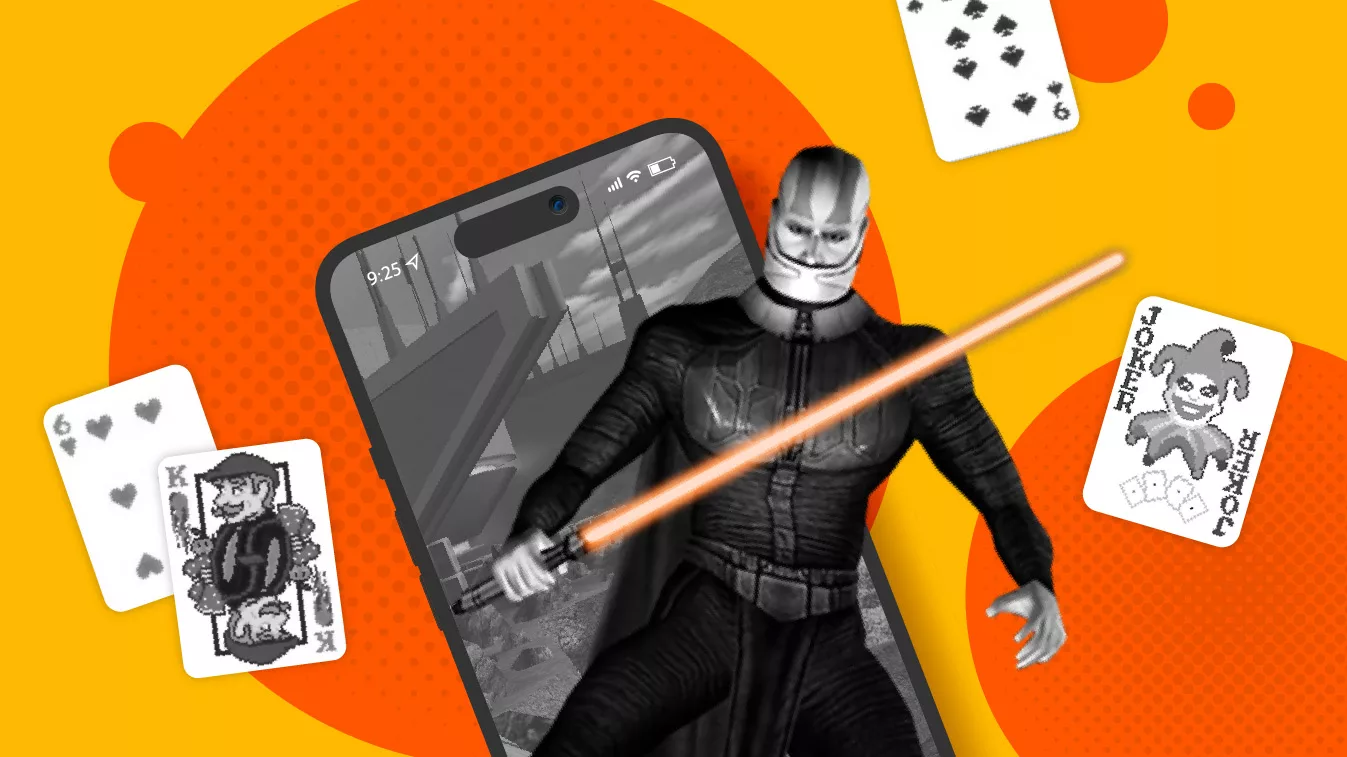
To know where we are going, we must first discover where we have been.
This is just as true for video games as it is in any other professional field. If you know that video games go all the way back to the second half of the previous century, you only know half the story.
At first glance, you could think that defining the first video game would be a simple task. But, like so many other first inventions or who invented them, you’d realize that the first video game is somewhat surrounded by mystery and confusion – both of which we’re hoping to dispel as best as we can.
In order to answer this question as precisely (or as simply) as we can, let’s first lay down the basics.
What’s Considered a Video Game?
Defining a video game is an important and crucial point when debating its history and origins.
The simplest definition is “Any of various interactive games played using a specialized electronic gaming device or a computer or mobile device and a television or other display screen, along with a means to control graphic images”, according to dictionary.com.
Furthermore, Wikipedia states that “Technically, for a product to be a video game under early definitions, it needed to transmit a video signal to a display.[1] This can (but not always) include a cathode ray tube (CRT), oscilloscope, liquid crystal display, vector-scan monitor, etc.”
Although this definition may sound complicated, it defines the technical parameters of a video game during early periods, such as those when video games were first introduced.
This is the foundation of what is used to define the first ever created video game in its purest sense.
Today, the definition of a video game is much more encompassing.

So, What Was the First Video Game?
After defining video games, we’ve narrowed down the possible inventions to be regarded as the absolute first video game.
Here are the top contenders for the title:
1. Bertie the Brain
According to some, Josef Kates’ Bertie the Brain—constructed in 1950—is the absolute first video game ever created.
Bertie was a huge game, literally, as it measured 13 feet tall! Bertie the Brain played Tic-Tac-Toe and was displayed in the Canadian National Exhibition.

One could also call Bertie the Brain one of the first AI creations.
For weeks, visitors to the exhibition were able to challenge the artificial intelligence of Bertie the Brain in varying levels of difficulty, similar to today’s video games.
Unfortunately, this staggering piece of history was disassembled at the end of the exhibition, and largely dismissed as no more than “novelty,” even if a fantastical one.
Enter William Higinbotham: The Man Who Invented Video Games
Although Bertie the Brain was a crucial part of gaming history, it did not fully meet the exact definition of what a video game is. Interestingly enough, in many ways, its mechanism could be compared to many casual games of today.
For this reason, we’ll have to fast forward to 1958 in order to look at what purists could call the first video game ever invented.
At Brookhaven National Laboratory, you could meet ambitious physicist William Higinbotham.
Born over 100 years ago in 1910, Higinbotham was no run-of-the-mill physicist. He already had an illustrious career behind him, having been a member of the team that created the first ever nuclear bomb.

Not many know that the man who practically invented what we today call a video game was also one of the men responsible for creating the most destructive technology this world has ever seen.
It’s an interesting dichotomy, to say the least, one that highlights the brilliance of this man’s mind, while at the same time proving that not everything in this world is simply black or white.
Being a part of this team (and the burden that went along with it) stayed with William Higinbotham for the rest of his life and troubled him. That is probably why he became one of the founding members of the “Federation of American Scientists” – a group with the stated intent of using science and scientific analysis to make the world more secure.
Having already been a pivotal linchpin in history, Higinbotham took up residency at Brookhaven National Laboratory in 1947. That is where he came up with Tennis for Two.
2. Tennis for Two: The Official First Video Game in the World
In October 1958, Tennis for Two, the first actual video game was revealed to the world. This took place during an open house hosted at the aforementioned Brookhaven National Laboratory. This game turned out to be the star of the show, much to the amazement of the attendees and even Higinbotham himself, so much so that people lined up to take their turn to play Tennis for Two!
Using a small analog computer, players could adjust two knobs and push a button, which simulated a game of tennis on an oscilloscope.
Essentially, this was an early version of the hit game Pong, which will come into existence 14 years later. The game took only hours to design and was a huge success.
As could be expected, Higinbotham was delighted and his little experiment achieved exactly what he was striving for: livening up an otherwise dull and boring event. In fact, one of the reasons he’d invented video games in the first place was to show that science isn’t all about war and destruction.

As so often happens with viral and popular games, Tennis for Two quickly and surprisingly became the most popular piece at the exhibit, capturing the minds of those who played it. It’s worth keeping in mind this game completely lacked any fancy graphics or complicated controls. Players wrote down their scores (yes, on paper) and challenges were issued.
Little did Higinbotham realize that day that he had started a revolutionary movement. A movement that would continue to grow for years to come, eventually reshaping the entertainment industry into what it is today.
Similar to its predecessor, Bertie the Brain, Tennis for Two was largely forgotten after the event hosted by Brookhaven National Laboratory. It wasn’t until many years later that the seed planted on that fateful day would blossom and begin to take root.
Despite being accredited as the father of the first video game ever created, Higinbotham would not focus on this field of study and research. Leaving that venture in others’ capable hands, he returned to his work on nuclear arms control for the rest of his career.
Tennis for Two, a pivotal part of gaming history, was sadly dismantled, its parts used in other projects, destroying it for all time and making it another lost relic of the past.
Video Game Culture Explodes
For much of the remainder of the 1950’s and 1960’s, the video game industry remained relatively quiet. Slowly but surely, progress was inching ever forward as other brilliant minds would begin to take an interest in what we call today “interactive media.”

Arcades began to gain popularity across the world and gave people, most of whom were teenagers, a place to meet and socialize, while at the same time fostering a competitive culture that would push each other (and the industry) to their limits. Arcades could even be considered some of the first iterations of esports.
It wasn’t until the creation of Pong that the movement truly began to grow wildly. Pong was the first blockbuster game that captured the minds of the American public in droves and led to a hyper-acceleration of the gaming industry.
Thanks to Pong, Atari became a household name across the United States, and their video game console a staple item in many homes.
Over a few decades, the gaming industry has grown at an unimaginable pace, in every possible aspect – in terms of game numbers, graphics, global net worth, public interest and much much more.
The Legacy Left by the First Video Games
It is estimated that the gaming industry generated roughly $347 billion USD in 2022 alone, meaning it has more than doubled its revenue over the course of two years (from about $140 billion in 2020).
What this means is that the gaming industry has rocketed past other sectors in the entertainment industry, surpassing even Hollywood and its other entertainment competitors.
It’s kinda hard to imagine either Higinbotham or Kates imagining any of this happening, as they were creating the world’s first video games, or as they’d seen it – inventions to show the general public that science isn’t just boring.










